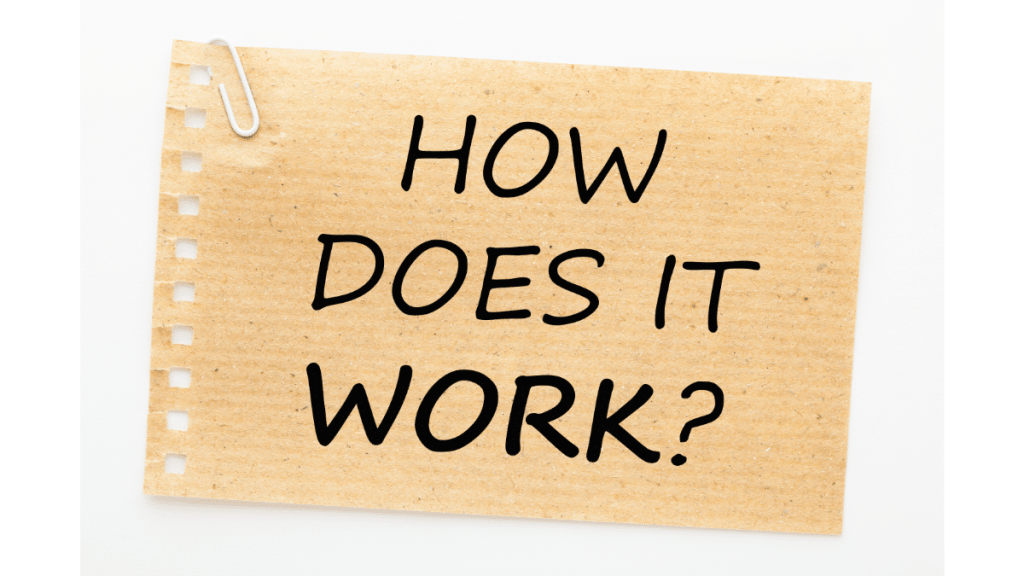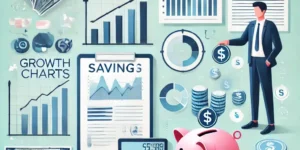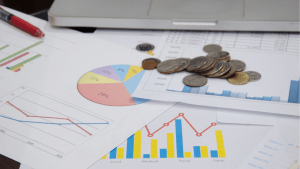Economics is often seen as a complex and intimidating subject. However, understanding the basics of how economics works is essential for making informed decisions in our daily lives. This blog post aims to break down the fundamental principles of economics, providing a solid foundation for anyone interested in gaining a better grasp of this significant topic.
From households to entire nations, economics plays a vital role in shaping the way resources are allocated and utilized. By exploring concepts such as supply and demand, market structures, and fiscal policy, we can better appreciate the inner workings of the economic system.
Dive into the world of economics and discover how it impacts your daily life. With a clear understanding of the underlying principles, you’ll be better equipped to navigate financial decisions and participate in discussions on economic issues. So, let’s get started on our journey to unravel the mysteries of how economics works and uncover its real-world applications.
What is Economics?
Economics is a social science that studies how societies allocate and use resources to produce goods and services. It is concerned with the decisions made by individuals, businesses, and governments to allocate resources efficiently.
Definition of Economics
Economics is the study of how individuals, businesses, and societies allocate scarce resources to satisfy unlimited wants and needs. It is concerned with the production, consumption, and distribution of goods and services.
Importance of Economics in Society
Economics plays an important role in society as it helps us understand how resources are allocated and used. It provides us with insights into how businesses operate, how governments make policy decisions, and how individuals make choices about what to buy and how to spend their money.
One of the key benefits of economics is that it helps us understand the trade-offs that we face in our daily lives. For example, if we choose to spend money on a new car, we may have to give up the opportunity to travel or invest in other areas.
Economics also helps us understand the impact of policies and regulations on the economy. By studying the effects of taxes, subsidies, and other policies, economists can provide insights into how governments can promote economic growth and reduce inequality.
Overall, economics is a valuable tool for understanding how our society works and how we can improve it. It provides us with insights into the choices we make and the trade-offs we face, and helps us make better decisions about how to allocate our resources.
Key Concepts in Economics
Economics is a complex field of study that involves the production, distribution and consumption of goods and services. There are several key concepts in economics that are important to understand, including supply and demand, scarcity and choice, opportunity cost, and economic systems.
Supply and Demand
Supply and demand are two of the most fundamental concepts in economics. Supply refers to the amount of a product that producers are willing to offer for sale at a given price, while demand refers to the amount of a product that consumers are willing to buy at a given price. The relationship between supply and demand determines the market price of a product.
Scarcity and Choice
Scarcity is the fundamental economic problem of having seemingly unlimited human wants in a world of limited resources. Because of scarcity, choices must be made. Every choice has an opportunity cost, which is the value of the next best alternative that must be given up in order to pursue the chosen action.
Opportunity Cost
Opportunity cost is the cost of forgoing one option in order to pursue another. It is the value of the next best alternative that must be given up in order to pursue a certain action. Opportunity cost is an important concept in economics as it helps individuals and businesses make more informed decisions about how to allocate their resources.
Economic Systems
Economic systems are the structures and methods used by societies to allocate resources and distribute goods and services. The most common economic systems are capitalism, socialism and communism. Each system has its own advantages and disadvantages, and each is based on different assumptions about human behavior and incentives.
In conclusion, understanding these key concepts in economics is crucial to making informed decisions about how to allocate resources and distribute goods and services. By understanding the relationship between supply and demand, the importance of scarcity and choice, the concept of opportunity cost, and the different economic systems, individuals and businesses can make more informed decisions and achieve greater success.
Understanding Markets
Markets are an essential component of the economy. They are places where buyers and sellers come together to exchange goods and services. Understanding how markets work is crucial to understanding how the economy as a whole functions. In this section, we will delve deeper into the two main aspects of markets: market structures and market failures.
Market Structures
Market structures refer to the various types of markets that exist in the economy. There are four main market structures: perfect competition, monopolistic competition, oligopoly, and monopoly. In a perfect competition market structure, there are many small firms that produce identical products and have no market power. In a monopolistic competition market structure, there are many small firms that produce differentiated products and have some market power. In an oligopoly market structure, there are a few large firms that produce identical or differentiated products and have significant market power. In a monopoly market structure, there is one firm that produces a product with no close substitutes and has complete market power.
Each market structure has unique characteristics that affect the behavior of firms in that market. For example, in a perfectly competitive market, firms are price takers, meaning they cannot influence the market price. In contrast, in a monopoly market, the firm can set the price of its product because it has complete market power.
Market Failures
Market failures occur when the market fails to allocate resources efficiently. There are various reasons why market failures can occur, such as externalities, public goods, and market power. Externalities refer to the costs or benefits that affect people who are not involved in the market transaction. For example, pollution is a negative externality because it affects people who are not involved in the production or consumption of the polluting product. Public goods are goods that are non-excludable and non-rivalrous, meaning that everyone can use them at the same time without reducing the benefits available to others. Market power occurs when a firm has the ability to influence the market price and restrict output, which can result in higher prices and reduced output.
When market failures occur, government intervention may be necessary to correct the market failure and ensure an efficient allocation of resources. For example, the government may impose taxes on polluting firms to internalize the externality or provide public goods that the market would not otherwise provide.
Understanding market structures and market failures is critical to understanding how the economy operates. By understanding these concepts, we can better analyze economic problems and develop policies to address them. How Economics Works – Macroeconomics
Macroeconomics
Macroeconomics is the study of the economy as a whole, rather than individual markets or industries. It looks at broad economic indicators such as Gross Domestic Product (GDP), inflation and deflation, and unemployment to understand the overall health and performance of the economy.
Gross Domestic Product (GDP)
GDP is the total value of goods and services produced within a country’s borders in a given period of time, typically a year. It is a key indicator of the size and growth of an economy. GDP can be broken down into different components, including consumption, investment, government spending, and net exports. High GDP growth rates generally indicate a healthy and growing economy, whereas low or negative growth rates indicate a sluggish or contracting economy.
Inflation and Deflation
Inflation is the rate at which the general level of prices for goods and services is increasing over time. It is often measured using the Consumer Price Index (CPI), which tracks the prices of a basket of goods and services commonly purchased by households. Moderate inflation can be a sign of a healthy economy, but high or unstable inflation can lead to economic instability and reduce the purchasing power of consumers. Deflation, on the other hand, is the rate at which the general level of prices for goods and services is decreasing over time. It can be a sign of a weak economy and can lead to lower consumer spending and increased unemployment.
Unemployment
Unemployment refers to the number of people who are actively seeking employment but are unable to find work. It is often used as a measure of the health of the labor market and the overall economy. High unemployment rates can indicate a weak economy with limited job opportunities, while low unemployment rates can indicate a strong economy with plentiful job opportunities. However, low unemployment rates can also lead to labor shortages and wage inflation.
Microeconomics
Microeconomics is the branch of economics that studies the behavior of individuals and firms in making decisions regarding the allocation of limited resources. It focuses on how consumers and producers interact in the market, and how their decisions affect prices, quantities, and quality of goods and services.
Consumer Behavior
Consumer behavior is the study of how individuals, households, and organizations make decisions to purchase goods and services. It involves a range of factors such as personal preferences, income, prices, and availability of substitutes.
For example, when a consumer decides to purchase a product, they weigh the benefits against the costs. If the benefits outweigh the costs, the consumer is more likely to make the purchase. Additionally, if there are substitutes available, the consumer will compare the features, quality, and price of each product before making a decision.
Production and Costs
Production and costs are essential concepts in microeconomics. Production refers to the process of transforming inputs into outputs, while costs refer to the expenses incurred in the production process.
The cost of production includes both explicit costs (such as wages, rent, and materials) and implicit costs (such as the opportunity cost of the resources used in production).
Firms aim to produce goods and services at the lowest possible cost to maximize their profits. They achieve this by minimizing their costs of production while maximizing their output.
Market Competition
Market competition refers to the rivalry between firms in the same industry. It is essential in determining the prices and quantities of goods and services in the market.
In a competitive market, numerous producers offer similar products at similar prices. As a result, each producer must keep their prices low to attract consumers. Additionally, firms must constantly innovate and improve their products to remain competitive.
In conclusion, microeconomics is an essential aspect of economics that studies the behavior of individuals and firms in the market. It covers topics such as consumer behavior, production and costs, and market competition. By understanding these concepts, individuals and firms can make informed decisions and maximize their efficiency in the market.
Conclusion
In conclusion, economics is a complex subject that involves the study of how societies allocate scarce resources to meet their unlimited wants and needs. It is a field that is constantly evolving, with new theories and models being developed all the time. By understanding the basic principles of economics, we can gain a better understanding of the world around us and make informed decisions about how to allocate our own resources. Whether you are an individual trying to make ends meet or a business looking to maximize profits, economics provides the tools and insights you need to succeed. So if you want to be a savvy consumer, a successful entrepreneur, or just someone who understands how the world works, it pays to learn about economics.
Related Links:











